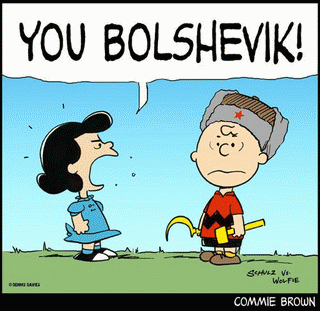First published in The Washington Times on May 9, 2013
Russia continues to be uniquely mistrusted and feared in the West. To understand why, it is helpful to distinguish between objective fears and subjective fears. Objective fears are those linked to actions that pose a clearly defined threat, and that can induce changes in behavior. Typically, these involve some form of military or economic coercion. On both these scores our fear of Russia does not seem commensurate with the objective threat.
For one thing, since the collapse of the USSR, the Russian military has been so chronically underfunded that many Western military analysts candidly doubt whether it can afford to mount a serious military mission. The rebuilding of Russia's military, which has just recently begun, will take decades, if it succeeds at all.
It is just as difficult to imagine Russia as an economic threat, since it has just a small handful of corporations that compete effectively in the global economy. In 2007 there were only twenty Russian companies among the Forbes Global 2000. Today there are eight more. By contrast, the United States has over five hundred such companies. Nor is Russia among the top forty nations in numbers of acquisitions of American businesses. Its purchases in the past five years amount to just one-tenth of one percent of all foreign acquisitions.
Nor should we be terribly worried about Russia using gas as a means of coercion. Being what energy analysts call "a single off-taker," European end users of gas have enormous leverage over pricing. This is one of the reasons why some Russian analysts question the benefits of building an eastern pipeline to China.
But if objective factors do not rise to a perceptible level of threat, what else can explain our inordinate fear of Russia? I believe the answer lies in a number of deep seated cultural orientations, which are essentially subjective in nature. We know them as "the truths we take for granted," and that define "the world as we know it." No matter how enlightened we may be as individuals, we rely on such stereotypes to make sense of the world, and to function in it.
These cultural orientations help to explain the visceral reactions that are evoked by the prospect of Russia joining the West. Given what we know of social psychology, it is scarcely surprising that the collapse of communism, while on the one hand welcomed for bringing an end to the Cold War, should also be a source of acute intellectual discomfort, stemming from the prospect of having to change Russia's position within our established cultural framework.
How is Russia a cultural threat to the West? The answer lies in "the values gap." The values in question are defined differently by different observers. Some give priority to the rule of law, while others emphasize media freedom, religious freedom, or human rights. Standards are never clearly defined or made explicit, and so boil down to the assertion that Russian political culture is, on some level, alien to Western civilization.
The perception of Russia as a cultural threat does much to explain the West's hostile reaction to Putin's third term as president. By making Russia stronger, he has actually delayed the value changes that the country needs to be accepted by the West. The standard Western approach to Russia is therefore mired in paradox: As Russia becomes economically and politically stronger, and is therefore able to better integrate into Western institutions, it is more actively prevented from doing so because of ostensible differences in values.
This approach can no longer be sustained. For one thing, it is quite wrong to think of Western values as carved in stone. Individualism and collectivism, religious tolerance and religious bigotry, ethnic tolerance and racism all have deep intellectual and cultural roots in Western civilization. The most important thing about "Western values" is not that they are unique, but that they are the subject of tireless discussion. In the past this discussion included Russia. It should again.
Our ideological confrontation with Russia ended more than a generation ago, but our old cultural stereotypes have proven much harder to change. Getting over these stereotypes might be easier if we approached the task of engaging with Russia not as one of instruction, but as one of respectful, mutual re-acquaintance.
Seen in this light, putting an end to Russia's cultural isolation could revitalize the West. It could even lead, as former German president Roman Herzog put it, to the healing of Europe's soul.






